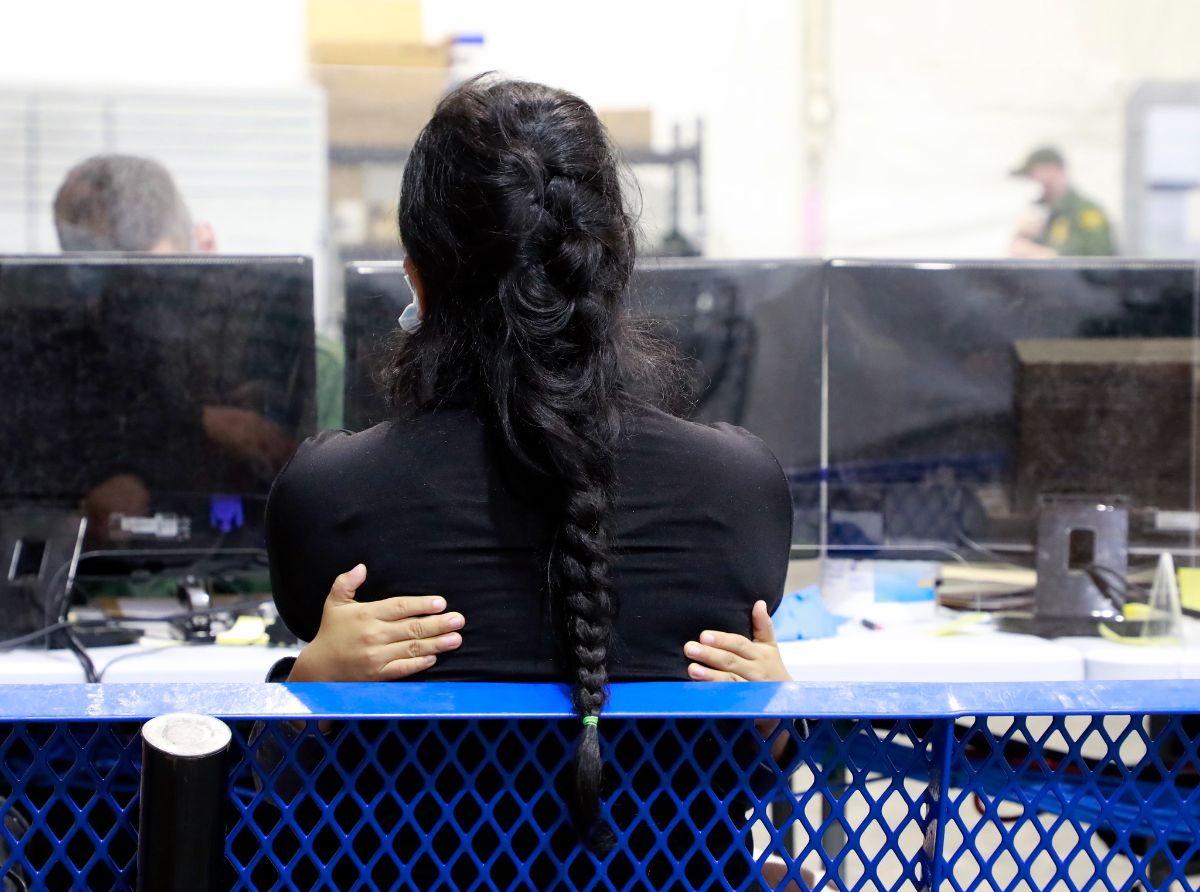Welcome to Factal Forecast, a look at the week’s biggest stories from the editors at Factal.
We publish our forward-looking note each Thursday to help you get a jump-start on the week ahead.
As thousands of people join a migrant caravan in southern Mexico headed for the U.S. border, authorities in both countries are weighing their options. In this week’s Factal Forecast podcast, Senior Editor Jimmy Lovaas and Editor Jaime Calle Moreno discuss the circumstances driving the journey and the uncertain future that awaits them.
Listen now or download on your favorite platform.
Week of June 10-17
A Look Ahead
June 9
Jan. 6 insurrection House committee hearings
Nearly a year after its formation, the House committee responsible for investigating the Jan. 6 attack on the U.S. Capitol will make its findings public in a series of six hearings, with the first scheduled for Thursday evening.
What’s happened so far
The House committee, comprised of seven Democrats and two Republicans, has interviewed more than 1,000 people and collected more than 140,000 documents over the course of its 11-month investigation, with little information revealed to the public so far. More than 800 suspects have been arrested and charged by law enforcement.
The impact
The first hearing will be broadcast at prime time, 8 p.m. ET, in an attempt to capture the attention of as many Americans as possible. There has not yet been a public announcement on who will testify, but lawmakers are expected to set the agenda for the following hearings and have promised brand-new information relating to the events preceding the attack and the riot itself.
June 11
Libya constitution negotiations
On Saturday, the United Nations is bringing together rival authorities of Libya, Africa’s largest oil holder, for talks on a new constitution that aims to form the basis for elections and prevent a backslide to civil war.
What’s happened so far
Libya’s 7 million people are caught between two governments — based in the country’s eastern and western regions, respectively — that each claim to have the legitimacy to rule, though neither has the military strength to defeat the other. After politicians failed to hold elections according to a 2020 ceasefire agreement and reverted to using oil as leverage against each other, the U.N. is intervening to prevent further escalation.
The impact
According to the U.N., last month’s talks succeeded in reaching agreement on the majority of articles addressing rights and freedoms, and legislative and judicial authority. Finalizing constitutional work would pave the way for parliamentary and presidential elections that aim to end the decade-long power struggle that followed the toppling of Muammar al-Gaddafi.
June 11
March for Our Lives
More than 300 demonstrations against gun violence are planned for Saturday across the United States, including at the Washington Monument, in the wake of mass shootings last month at a Buffalo, N.Y., grocery store and elementary school in Uvalde, Texas, that left a total of more than 30 people dead.
What’s happened so far
The day of action comes more than four years after the first march, organized by students at Marjory Stoneman Douglas High School in Parkland, Fla., after a shooting killed 17 people and injured 17 others. David Hogg, one of the group’s founders, has also urged people outside the country to protest at U.S. embassies, saying “we must make the fact that our government has done nothing to protect our kids even more of an international embarrassment.”
The impact
The 2018 protests marked the largest youth-led demonstrations since the Vietnam War era, but the expected size of Saturday’s marches is unclear. Organizers said they’ve also made plans to meet with more than 50 lawmakers in their latest push for gun control legislation.
June 12
French National Assembly election
Two months after French President Emmanuel Macron was re-elected in a tight race, French voters will again head to the polls Sunday to choose National Assembly lawmakers.
What’s happened so far
Legislative elections take place every five years in France, electing 577 lawmakers across the nation. Ahead of the weekend vote, overseas voting results show Macron’s bloc “Ensemble” winning most of the constituencies, despite an improved performance for left-wing party NUPES compared to 2017. In France, the second round will take place June 19, while overseas second rounds begin June 18.
The impact
While Macron’s party hopes to secure a large majority in the assembly to enable him to pass laws, April’s elections — in which opponent Marine le Pen secured 41.5 percent of the votes — showed an increasingly divided country. Recent scandals have also hit the start of Macron’s new term, with the Champions League incident and newly appointed Minister Damien Abad accused of rape by two women. A recent poll showed for the first time “Ensemble” could fall short of an absolute majority in parliament.
June 12
Norway oil and gas workers threaten strike
Norwegian oil and gas workers could go on strike Sunday over a wage dispute.
What’s happened so far
More than 600 employees of the fossil fuels sector are demanding a pay rise above inflation levels and some additional benefits in negotiations with the Norwegian state that started in May. If the round of negotiations scheduled to start on June 10 fails, strike actions will be implemented in at least 10 offshore oil production platforms and three mobile service units.
The impact
The unions threatening to strike have so far said they intend to avoid disruptions of gas production, citing the ongoing supply shortages caused by the war in Ukraine. Oil output, however, is likely to be affected, foreseeably aggravating soaring global energy prices. Workers have also warned of escalation if further pressure is necessary to achieve their demands.
June 15
FDA to review Moderna and Pfizer vaccines for small children
The U.S. Food and Drug Administration’s expert committee will host an open meeting Wednesday to review new data and discuss the approval of coronavirus vaccines from Moderna and Pfizer for young children.
What’s happened so far
The committee will first meet Tuesday to discuss whether to extend Moderna’s emergency use authorization regarding vaccines for children aged six to 17 years. It will then consider on Wednesday whether to approve a request for Moderna’s vaccine to be used on children aged 6 months to 5 years, and it will also consider the use of Pfizer’s vaccine for those aged 6 months through 4 years.
The impact
The FDA is not obligated to follow the recommendations of the committee, but it usually does. It will also decide whether to authorize the Moderna and Pfizer vaccines within days of each other, giving parents the opportunity to choose between two options if they are both approved and potentially leading to a rollout in the first weeks of summer.
June 15
Two Saudi delegations to visit U.S.
Two Saudi government delegations, one led by Riyadh’s commerce minister and another by its investment minister, will reportedly visit the United States next Wednesday.
What’s happened so far
According to Reuters, the delegations will involve Saudi company executives, and topics of discussion will include agreements in several sectors, including renewable energy. The visit directly follows a decision by OPEC+ to boost oil production as well as an announcement that Riyadh had extended a truce with Yemen’s Houthis, two decisions that drew praise from Washington.
The impact
The visit signals a detente between the Biden administration and Riyadh is underway after bilateral ties were strained. Further reporting indicates that a trip by President Joe Biden to Saudi Arabia could come as soon as July and include a meeting with the crown prince and de-facto ruler. While proponents of the thaw say it is necessary to bring down surging energy prices, critics urge Biden to forgo the visit on human rights grounds.
June 16
Tunisia’s UGTT union calls for national strike
Tunisian General Labour Union (UGTT), the country’s largest trade union, has called for a nationwide general strike next Thursday in protest over a continued dwindling economy, in what analysts describe as the largest challenge to President Kais Saied yet, since his seizure of broad powers last July.
What’s happened so far
Tunisia, which has long been struggling with growing financial concerns, is in talks with the IMF for another $4 billion rescue package to finance its budget. As part of these discussions, the government proposed several reforms, that include a years-long salary freeze in the public sector and cuts to subsidies — all of which have been rejected by the 1 million members-strong union. When the government refused a further wage increase, the union called for a national public strike, demanding an all-new reform plan and a return to wage negotiations.
The impact
While President Saied and the UGTT remain at loggerheads, Tunisia’s economy worsens. The coronavirus pandemic exacerbated existing economic struggles, leading to a notably reduced GDP growth and unemployment rate reaching 16.1 percent. Fitch Ratings predicts that, in the absence of an IMF deal, Tunisia’s “international reserves will gradually erode … and the dinar to depreciate,” posing even greater challenges to the country.
What Else Matters

Migrant caravan in southern Mexico
On Monday, one of the largest migrant caravans in recent years set off from Mexico’s southern border town Tapachula toward the U.S. border. Unofficial counts range from 5,000 to 15,000 migrants, mostly families, from various countries across the Americas. Migrants have spoken of dire conditions and a Mexican policy of keeping them in the southernmost state, with little or no chances of receiving asylum papers from an overwhelmed immigration office. With the Summit of Americas ongoing, the caravan hopes to garner attention and push for a more inclusive regional migration policy.
Watch for: The Summit of the Americas had regional migration as a cornerstone of the talks, but the caravan will undoubtedly pressure U.S. President Joe Biden and other regional leaders, excluding Mexico’s President Andrés Manuel López Obrador, to find a compromise quickly. Biden’s attempt at removing Title 42, an immigration policy initially set for infectious diseases but in practice amplified, was blocked. While authorities in Mexico and Guatemala previously broke up smaller caravans in recent months, the former seems to be taking a more observational approach. Clashes could erupt as security forces attempt to stop their trajectory, but the sheer size of the caravan may rule out force.
Israel settler law
Israel could be on the brink of returning to political upheaval following a surprise vote in the Knesset on Monday. The fragile coalition in power failed to pass a bill that upholds the legal status of Israeli settlers in the West Bank. Now, that legal status is set to expire at the end of the month. The coalition is made up of eight diametrically opposed political parties who agreed to end Benjamin Netanyahu’s term as prime minister. Some members say passing the bill would continue an unfair system. Others call it status quo and a way to keep the government intact.
Watch for: If the eight parties can’t come to an agreement on this law, it will likely spell the end of the coalition. At least one party has already said it would leave if the measure isn’t passed. That would likely trigger another round of elections, the country’s fifth since April 2019.
Extended Outlook
What’s on our radar in the coming weeks…
June 9-17
June 9
- Somalia’s new president to be inaugurated
June 10
- House Jan. 6 committee begins hearings
June 11
- March For Our Lives
- Libya constitution negotiations
June 12
- Election for National Assembly of France
- Norway oil and gas workers threaten strike
June 13
- Second U.S. House Jan. 6 hearing
June 14
- FDA to review Moderna and Pfizer vaccines for small children
- Primaries in Maine, Nevada, North Dakota and South Carolina
June 15
- Bishkek to host Expo-Russia Kyrgyzstan exhibition
- Saudi delegation to visit U.S.
June 16
- Eurozone finance ministers meet
- Tunisia’s UGTT union calls for national strike
June 18-24
June 19
- Colombia presidential election runoff
- National Assembly of France second round election
June 20
- Commonwealth Heads of Government Meeting (CHOGM) in Rwanda
- Indonesia to host G20 health ministers meeting
June 21
- Primaries in Virginia, and runoffs in Alabama, Arkansas and Georgia
- 16th ASEAN defense ministers’ meeting
- Switzerland and Singapore host fintech confereence
June 22
- Belarus to hold military exercises in southeastern Gomel region bordering Ukraine
- International Air Show in Berlin
June 23
- European Council meeting
June 25-July 1
June 26
- New York City’s Pride March
- G7 summit begins in Schloss Elmau, Germany
- NASA to launch rockets from Australia’s north for scientific studies
June 28
- Primaries in Colorado, Illinois, Maryland, New York, Oklahoma and Utah, and runoffs in Mississippi and South Carolina
June 28
- NATO summit in Madrid
June 30
- Parliamentary elections in Libya
- Philippines President-elect Ferdinand Marcos takes office
July 1-8
July 1
- Japan to ask households, companies to save energy
- Czech Republic takes over the EU presidency
July 3
- Pope Francis visits the Democratic Republic of the Congo and South Sudan
July 4
- U.S Independence Day
- NASA to launch rockets from Australia’s north for scientific studies
Thanks for reading! If you want the Forecast in your email inbox, you can sign up for free.
Top photo: Trump supporters gathered on the steps of the U.S. Capitol on Jan. 6, ahead of breaching the building in an attack that left several dead and injured. (Photo: Brett Davis / Flickr)
What is Factal?
Trusted by many of the world’s largest companies and nearly 300 humanitarian NGOs, Factal is a risk intelligence and collaboration platform that brings clarity to an increasingly noisy and uncertain world.
Powered by a hybrid of advanced AI and experienced journalists, Factal detects early signals, verifies critical details and assesses the potential impact at the speed of social media. From physical incidents and brand mentions to geopolitical developments, Factal offers the most trusted, real-time risk intelligence on the market.
Factal is also home to the largest security and safety collaboration network in the private sector. Members securely share information with other members in proximity to the same incident, both on Factal.com and the Factal app.
Learn more at Factal.com, and we’d love to hear from you.


